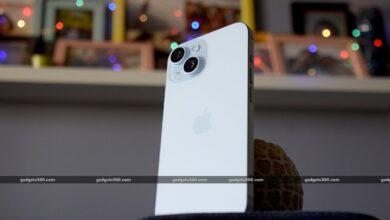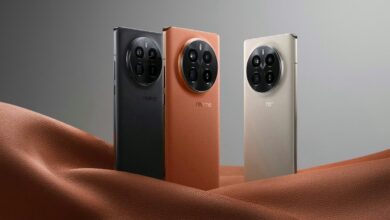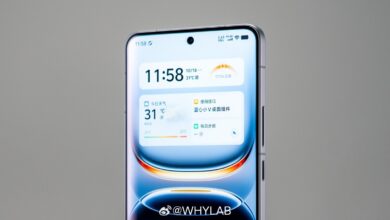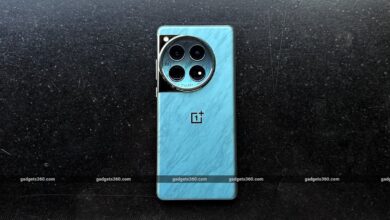Google Pixel 9 Pro Fold Review: Jack of All Trades
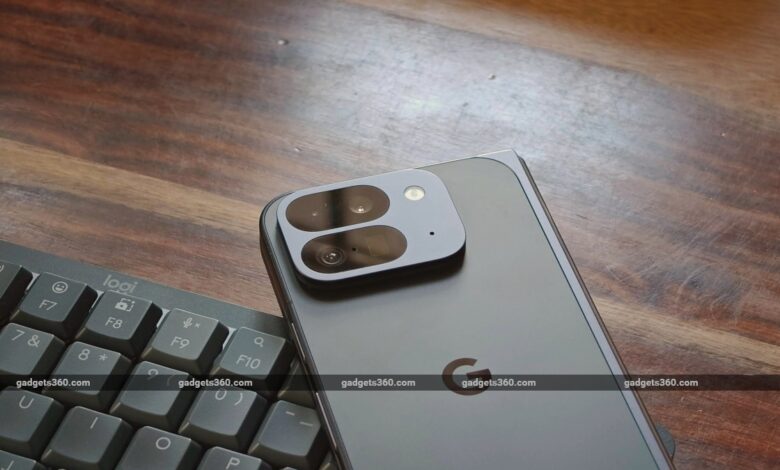
Foldables have indeed come a long way, especially in India. While earlier limited to Samsung’s Galaxy Z Fold range, 2024 has provided enough variety from a number of manufacturers across foldable segments. You can now get one for as low as Rs. 64,999 in a flippable clamshell form factor or pony up Rs. 1,59,999 for a top-of-the-line book-style foldable that literally competes with premium slab-style smartphones. With the emergence of tri-fold devices, foldables even make those bloated iPhone price tags in India appear palatable for Android users.
And for those curious iPhone Pro users wanting to try out something new, a foldable offers a new form factor and is a value-for-money offering given that they are already paying well over Rs. 1,00,000 for a “Pro” iPhone. And what better Android device to begin with than Google’s own Pixel foldable! It has an almost iPhone-like philosophy, with both the software and chip design controlled by the brand.
Indeed, this is something we are witnessing for the first time in the foldable segment (at least in India). With a long moniker that makes sense given the numerous features it brings to the table, is Google’s first Pro-branded Pixel worthy of its “Pro” branding and its price tag?
Google Pixel 9 Pro Fold Review Design: Beauty and the beast
- Dimensions (Folded) – 155.2mm x 77.1mm x 10.5mm
- Dimensions (Unfolded) – 155.2mm x 150.2mm x 5.1mm
- Weight – 257 grams
- Durability – IPX8 water resistance
![]()
The Pixel 9 Pro Fold sure looks cool. It has a slimmer, leaner and minimalist avatar, but it’s also the heaviest foldable in the segment
The Google Pixel 9 Pro Fold currently has the slimmest design of any foldable in India. When placed on a table next to the OnePlus Open, it literally feels half as thick when folded (because of its thinner camera bump) and abnormally slim when opened. It looks very “Swedish” (read minimalist) in terms of overall design, and I would have loved holding it if it had not weighed over a quarter of a kilo.
Vivo’s X Fold 3 Pro is taller and thicker (by about a millimetre) and is surprisingly more comfortable to hold than the Pixel 9 Pro Fold. This is partially due to its slightly narrow design (accompanied by thin bezels), but it is also lighter by 21 grams and has bevelled corners and curved edges.
![]()
The Pixel 9 Pro Fold (left) is slimmer and flatter, while the Vivo X Fold 3 Pro (right) is easier to hold thanks to its curved edges and bevelled corners
I wish that Google had stuck to its smaller passport-sized design (like the old Pixel Fold), which was unique and special. The original Fold’s design also meant that the device always opened directly in a tablet state (horizontal versus vertical) and so did not need to be reoriented when watching movies. It was the perfect design for a foldable (which most people expect to turn into a tablets when opened), but Google’s designers took a smartphone-first design approach and kind of ruined its USP.
![]()
How slim is the Pixel 9 Pro Fold? Here, it is pictured next to Google’s own slab-style Pixel 9 Pro XL flagship
This new approach results in a narrower cover display, which I agree is more comfortable to hold, but this also means you will have to reorient the phone when watching a movie, as explained in the display section below.
Google uses aluminium alloy for the metal parts and has the slimmest profile thanks to its use of flat front and rear panels. However, I’m not confident about its durability because the frame is thin. It’s barely 1mm thick near the hinge, and while it looks sleek, it also feels quite delicate.
![]()
With such skinny margins for its front and rear frames, the Pixel 9 Pro Fold does feel quite delicate around the hinge area
Another area where Google manages to chisel down its foldable to beat the competition is the bezel surrounding the main folding display, which literally looks like a glossy sticker.
Lastly, the overall finish of the Fold is a bit lacking when compared to the Pixel 9 Pro XL’s design. While the buttons and port cutouts are a bit sharp, there are minor gaps where the glass panel meets the metal frame. The phone is IPX8-rated, meaning that it can withstand splashes of water from any direction, but do keep in mind that the warranty will not cover any damage caused by the same.
Google Pixel 9 Pro Fold Review Display: Actually good
- Cover display – 6.2-inch, 1080 x 2424 pixels, full-HD+, 120Hz
- Main display – 8.03-inch, 2076 x 2152 pixels, 120Hz
- Display Type – Cover: OLED, Main: LTPO OLED
- Display protection – Cover: Gorilla Glass Victus 2, Main: UTG
As you can tell from the specifications listed above, only the folding display of the Pixel 9 Pro Fold offers the battery-saving LTPO technology. Both displays show slightly punchy colours at the Adaptive setting, with the same getting toned down at the Natural setting. If you prefer the Natural setting for true-to-life colours, be sure to switch to the Adaptive setting when watching movies on OTT apps, as the displays tend to lose contrast in this mode.
![]()
The Pixel 9 Pro Fold has an attractive overall design, but it’s hard to ignore those thick borders around its cover display.
I liked how broad the cover display is, which also reduces the need to open the phone all the time. Like with the Pixel 9 Pro XL’s display, The well-rounded corner cutouts of the Fold’s design also eat into the viewable display area. It only makes things worse on a foldable as those corners make the rectangular display appear squarish.
Given the main folding display’s size, you get a more usable video viewing area when holding the device horizontally, and that’s the reason why you have to reorient it when viewing video on full screen (non-cropped view). And even then, there’s tons of wasted space above and below (letterboxing), so the squarish aspect ratio is better suited to run two apps side-by-side than for entertainment.
![]()
While its bezel is now thinner than before, the main display on the Pixel 9 Pro Fold has a very noticeable crease
In fact, if you are just looking for a bigger display for watching movies on, the Pixel 9 Pro XL is a better choice because it will last longer than the 9 Pro Fold with a single charge as well.
Google Pixel 9 Pro Fold Review Software: AI-tastic
- Software – Pixel UI
- Version – Android 14
- Software commitment – 7 years of OS, security and Pixel Drop updates
![]()
The Pixel 9 Pro Fold is the only foldable to offer a proper tablet-style split notification tray with toggles on the left and notifications on the right
There is a lot of detail and attention given to the folding experience. There’s a subtle closing animation with the home screen icons and widgets moving inwards when closing the main display. The lock screen clock also glides to the left when unlocking the device directly from the main display, which is a nice touch. My favourite is the split layout for the notifications tray with toggles on the left and the notifications on the right, which is commonly found on Android tablets that run near-stock Android software.
However, the Pixel 9 Pro’s multi-tasking capabilities are far from what the competition offers. Currently, it’s just limited to running two apps (displayed in full) in Split Screen mode, and that’s about it. The OnePlus Open, despite being the oldest foldable currently available, still seems to offer the best productivity setup with the ability to run three apps in full and another app in a small floating window, for those who need it.
![]()
The Pixel 9 Pro’s multi-tasking capabilities are limited to running two apps at a time
While you can read about all the AI features in my review of the Pixel 9 Pro XL, the Pixel 9 Pro Fold does come with a few fun extras. This would include the adorable Made You Look feature, which plays funny animations on the cover display to make kids laugh and smile when on camera. Dual Screen on Meet also lets users show the output from both front and rear cameras together when on a Meet video call. Dual-Screen mode for Live Transcribe is also very useful when on a holiday and can instantly translate 120+ languages. It also comes in use for those with hearing and speech disabilities.
Just like the Pixel 9 Pro XL, Car Crash Detection is now available, with the satellite-based Emergency SOS coming at a later date.
Google Pixel 9 Pro XL Review Performance: Pretty average
- Processor – Google Tensor G4
- RAM – 16GB
- Storage – 256GB
Despite the many foldable-friendly software refinements, it is a bit disappointing to see the UI stuttering with random apps (including the Google Discover feed). I understand that the Fold’s cover display is not an LTPO unit, but I noticed this very obvious lack of scrolling fluidity with both displays when browsing any app. This became more obvious when I compared it with the Pixel 9 Pro XL side by side. I believe the culprit here is the stricter battery optimisations. Either way, Google desperately needs to fix the jitter and stuttering, as Vivo’s X Fold 3 Pro offers a much smoother software experience at a lower price.
Google also skimps on storage, given that most foldables at this price point easily offer 512GB of storage. In a way, they do back it up with a free 2TB Gemini Advanced plan (for a year), but again, we would have loved to see more storage on a phone that’s this expensive.
| Benchmarks | Pixel 9 Pro Fold (Cover/Main) | Vivo X Fold 3 Pro (Cover/Main) |
|---|---|---|
| AnTuTu v10 | 11,15,037 / 10,65,151 | 20,51,650 / 20,63,526 |
| PCMark Work 3.0 | 13,686 / 12,744 | 14,489 / 14,251 |
| Geekbench Single Core | 1,872 / 1,651 | 2,143 / 2,167 |
| Geekbench Multi Core | 3,734 / 3,971 | 6,562 / 6,800 |
| GFXB T-rex | 120 / 119 | 120 / 120 |
| GFXB Manhattan 3.1 | 119 / 86 | 120 / 105 |
| GFXB Car Chase | 78 / 49 | 102 / 67 |
| 3DM Slingshot Extreme OpenGL | Maxed Out / Maxed Out | Maxed Out / Maxed Out |
| 3DM Slingshot | Maxed Out / Maxed Out | Maxed Out / Maxed Out |
| 3DM Wild Life | 8,683 / Maxed Out | Maxed Out / Maxed Out |
| 3DM Wild Life Unlimited | 8,948 / 9,273 | 17,985 / 18,721 |
I was not able to try out Google’s in-game split-view, which is available for certain titles as a Beta tester, because of some access-related issues. However, I tried Call of Duty: Mobile (at Max and Ultra frame rate) on the cover and main display and found its performance quite satisfactory. Genshin Impact stuttered a lot when the settings were maxed out. Touch sampling or sensitivity is not as accurate, and it felt a bit weird to play FPS games on a square display, even though it provides you with a much bigger display compared to the cover screen.
The phone gets hot while using the camera app outdoors, but it does not seem to affect camera performance (like on previous Pixel models) thanks to the vapour chamber cooling system.
![]()
It sure is impressive how Google managed to pack in wireless charging and VC cooling into a phone that’s as thin as a USB-C port when unfolded
For some reason, volume levels like those on the Pixel 9 Pro XL do not seem sufficient, especially while watching movies. I often found myself maxing it out most of the time and still did not find it sufficient in terms of sheer loudness. It also lacks a sufficient bass (even for a foldable).
While the side-mounted fingerprint reader worked just fine, I only needed to use it in dimly lit settings, or those with no light at all, as the secure face unlock system did the job quite well.
Google Pixel 9 Pro XL Review Cameras: Not what we expected
- Main camera – 48-megapixel (OIS), f/1.7 aperture, AF
- Telephoto camera – 10.8-megapixel (OIS), 5X optical, f/3.1 aperture, AF
- Ultra-wide camera – 10.5-megapixel, 0.5X, f/2.2 aperture, AF
- Selfie cameras – 10-megapixel, f/2.2 aperture, AF (cover/main)
![]()
Google’s camera system on the Pixel 9 Pro Fold remains similar to the older Pixel Fold
Indeed, there’s nothing “Pro” about the Pixel 9 Pro Fold’s cameras, as they don’t hold a candle to the Pixel 9 Pro XL’s cameras. Regardless, things only get worse when compared with the Vivo X Fold 3 Pro, as can be seen from the camera sample comparison below.
Google’s Pixel 9 Pro Fold loses to the sharper and more detailed photos produced by Vivo’s X Fold 3 Pro. Also, notice the better dynamic range in low light (tap images to expand)
Unlike most manufacturers trying to squeeze high-resolution camera sensors into their foldables. It remains to be seen whether Google wants to copy Samsung’s camera hardware strategy and stick with the same set of cameras for three generations, as the only real upgrades we have seen this year are with its selfie cameras.
Photos from the primary camera are decent and come out a bit soft when shooting indoors or against any outdoor lighting. When shooting outdoors, colours appear natural, with resolved detail on the lower side and some minor purple fringing. In low light, photos have decent detail but tend to crush the blacks as the older Pixel cameras did.
Edge detection in Portrait mode really needs a lot of work… even for a foldable (tap image to expand)
As with the Pixel 9 Pro XL, Portrait shooting is limited to 1.5X and 2X. However, unlike the XL, the Fold has to handle it all with a rather dated camera sensor, so these digitally scaled crops don’t look great. Portrait mode photos from the rear camera not only lack detail and contrast but also have horrible edge detection that can cut out hair, ears and glasses. So, I recommend using it only in daylight (if you really have to). In fact, I preferred shooting regular photos at 1X and adding an AI blur effect to them in the post, which also provided better detail.
Photos captured at 5X (optical zoom) appear a bit flat and soft (tap image to expand)
Photos from its primary camera (1X) come out alright (tap image to expand)
The 5X telephoto camera, while managing quality photos in daylight, shoots soft images in low light even when resorting to the Night Sight mode. The ultra-wide camera really feels like it’s been added to complete the spec sheet. Video performance is passable in daylight but comes out very noisy in low light; even Google’s Video Boost tool cannot seem to turn water into wine here.
Google Pixel 9 Pro XL Review Battery: A bit below expectations
- Battery capacity – 4,650 mAh
- Wired charging – 21W
- Wireless Charging – 7.5W wireless (Qi)
The Pixel 9 Pro Fold’s battery life lasts a full day on a single charge with moderate use. This would include some calls, camera usage, gaming, and frequently switching to the main display. In our video loop battery test, the phone managed to last 12 hours and 50 minutes when using the cover display and 8 hours and 8 minutes when using the larger main display. These numbers are below average for a foldable device, as I have seen better battery performance on foldables like the Vivo X Fold 3 Pro or even the OnePlus Open (which is now a bit dated).
![]()
Google does not provide the Pixel 45W charger in the box
Charging speeds are relatively slow, with the phone managing a full charge in 1 hour and 45 minutes when connected to a 61W PD charger. They are on par with Samsung’s Galaxy Z Fold 6 but nowhere close to what the current Chinese foldables offer both in terms of wired and wireless charging.
Google Pixel 9 Pro XL Verdict
Google’s neatly laid out software and segment-leading AI tricks may come to the 9 Pro Fold’s rescue, which finds itself in the hands of Pixel fans who have been desperately waiting for the foldable to reach Indian shores. But its dated camera system desperately needs an upgrade and does not fit the “Pro” moniker that Google’s chasing for its foldable.
When it comes to practical features that matter to most consumers, like smooth software, good battery life, fast charging and quality cameras, it comes up horribly short of Vivo’s X Fold 3 Pro (Review), making it an antithesis to this year’s Pixel 9 Pro XL (Review), which was a big step in the right direction for Google’s slab-style smartphones.
If you are looking for your first foldable, Samsung’s Galaxy Z Fold 6 (Review) and OnePlus’s Open (Review) offer extended repair warranties to give you better peace of mind and both of these, like the Vivo, are priced lower than Google’s foldable Pixel.

